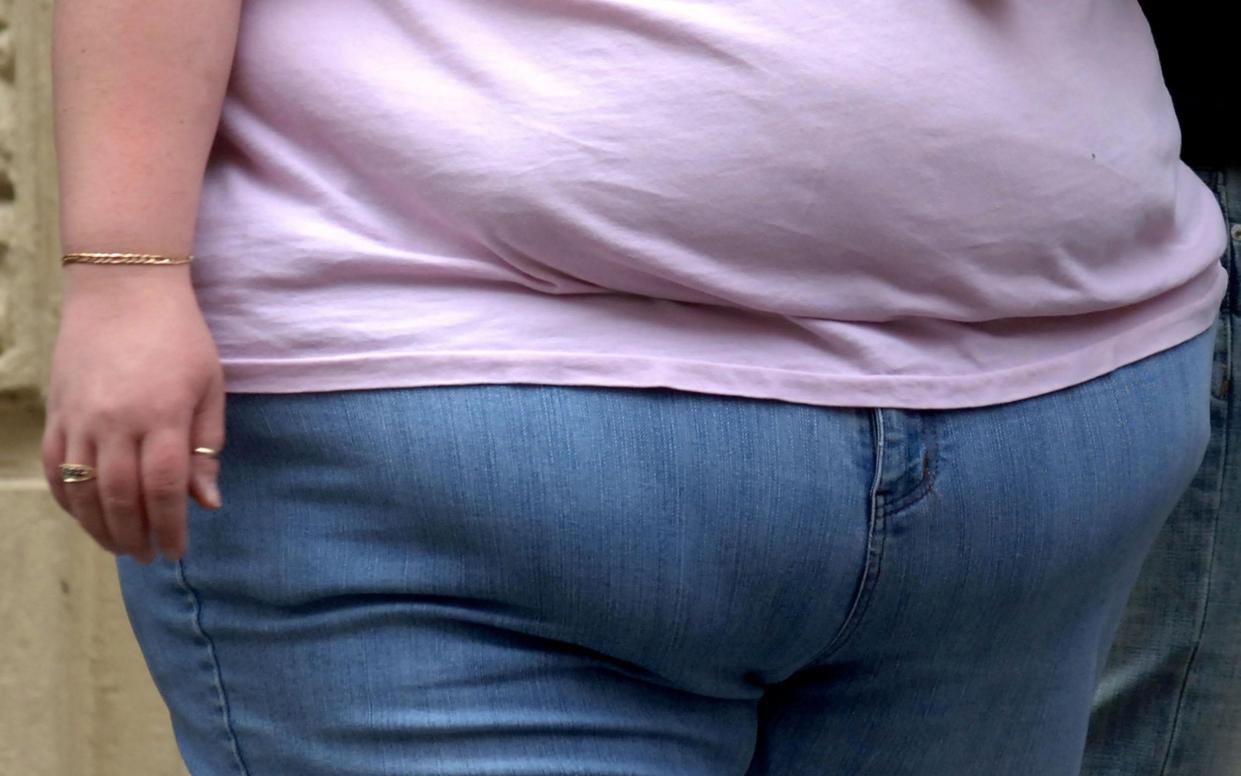Fear of offending obese people 'will bankrupt health service and social care'

Concerns about causing offence to obese people will bankrupt the NHS and social care, councils warned as the cost of caring for the overweight rises.
The NHS has said obesity is estimated to affect around one in every four adults and around one in every five children aged 10 to 11 in the UK. Up to one third of adults are predicted to be obese by 2024.
The Local Government Association (LGA) said council care costs are rising as levels of obesity increase, with more people living longer in ill-health and requiring costly housing adaptations, specialist equipment and personal care.
In a report published on Thursday, the LGA said weight-related stigmas needed tackling to help prevent increasing levels of obesity and severe obesity from having a significant impact on demand and cost pressures in adult social care.
Research shows that the yearly cost of council funded community-based social care for a severely obese person is nearly double that for a person with a healthy Body Mass Index (BMI), which equates to an extra £423,000 in annual excess social care costs for a typical council.
Obese people are 25 per cent more likely to be using some form of long-term care in two years than those with a healthy BMI.
Cllr Ian Hudspeth, the chairman of the LGA's community well-being board, said: "Obesity is a ticking timebomb for the nation's health and is one of the most serious public health challenges of the 21st century, but its impact on adult social care is largely overlooked.
"Unless we tackle the stigma and serious challenge of obesity, the costly and debilitating major health conditions it causes could bankrupt adult social care and NHS services.
"Health professionals need to start having frank conversations about people's weight if it could be an underlying cause of their condition, and routinely record it. Individuals need to take responsibility for their own decisions, and the Government needs to support them to do so.
"Obesity needs to be tackled head-on, otherwise people's health will continue to suffer, health inequalities associated with obesity will remain and the economic and social costs will increase to unsustainable levels."
The report, entitled "Social Care and Obesity" warned that councils are concerned that fear of causing offence and a lack of referral services for severely obese people means some health practitioners only record a person's condition, such as diabetes or stroke, in data and not obesity or BMI even though that is often the underlying problem.
Practitioners often compensate for the loss of mobility in obese clients with more equipment, meaning they move about even less and their problems are compounded, increasing their likely long-term reliance on social care.
The report urges doctors and health professionals "to have an honest conversation about people's weight" when they consider it to be the underlying cause of a condition, and for weight to be routinely recorded in data collection to help inform prevention work.
It adds that this "frank approach" has become more urgent considering that severe obesity rates have soared seven-fold for men and almost trebled for women since the mid-90s, with obesity rates increasing most among those from more deprived backgrounds.
Rising obesity levels have led to a rise in demand for specialist bariatric equipment for heavier patients, with some councils reporting a 47 per cent increase in spend on this – considerably more expensive than standard care equipment.
Obesity is linked to diseases including Type Two diabetes, hypertension, some cancers, heart disease, stroke, liver disease and musculoskeletal conditions. These affect people's ability to live independently, leading to increased benefit costs and demand for social care, which is already under significant stress.
A Department of Health and Social Care spokesman said: "We remain committed to helping everyone live longer, healthier and happier lives and delivering on the Prime Minister's priority of tackling obesity, reducing health inequalities and reducing the demand on the NHS and social care.
"We are taking bold action in our new obesity strategy – banning unhealthy food adverts before 9pm, ending deals like 'buy one, get one free' on unhealthy food, and introducing calorie counts on menus to help people make healthy choices.
"We know losing weight is hard, and we are working on plans to make more weight loss support available through doctors. We'll set out further detail on this in due course."

